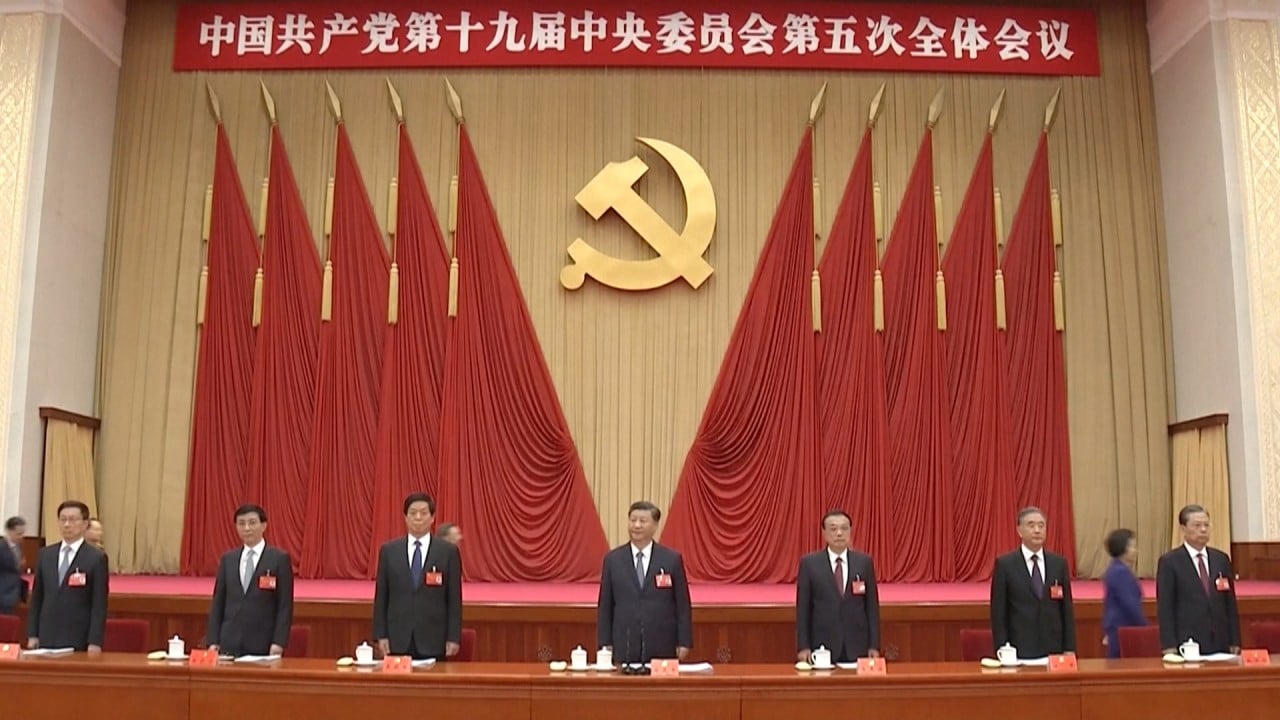
03:05
What happened at the Chinese Communist Party’s major policy meeting, the fifth plenum?

Chinese Premier Li Keqiang has told local government officials they must “tell the truth” about regional economic conditions so they can take the necessary steps to create more jobs, spur consumption and expand “effective investment”.
Li made the remarks in a video meeting with officials from five provinces on Friday, during which they discussed the state of their economies and how best to manage recovery from the coronavirus pandemic, according to a statement posted online by the government.
The local governments were asked to be forthcoming about their overall economic situations, what their economies needed and for input on the performance of the national economy.
“Only when you tell the truth, can we come up with practical measures,” Li, who is president Xi Jinping’s top economic adviser, was quoted as saying.

03:05
What happened at the Chinese Communist Party’s major policy meeting, the fifth plenum?
He also told the officials to focus on stabilising employment, expanding domestic demand and strengthening supervision of projects to ensure “effective investment”.
“Where there is employment and income, there is consumption,” he said. “We must strengthen employment policy to create more jobs.
“[There needs to be] a breakthrough to promote consumption to return to normal growth.”
No details were given about what the provincial officials from Guangdong, Heilongjiang, Hunan, Yunan and Shandong provinces told Li during the discussion.
The coronavirus has exacerbated financial pressure on regional economies, which have been struggling with declining fiscal revenues and increasing debt.
Li has questioned the reliability of local government economic data since he was head of the Communist Party in northeastern Liaoning province from 2004-07, preferring to use select indicators such as electricity consumption, rail cargo volume and bank lending to assess overall economic performance. The Economist later created what it called the “Li Keqiang Index” based on those indicators.
Many local governments in recent years have raised funds in violation of borrowing guidelines, despite increased scrutiny from Beijing, leading to a rapid rise in so-called hidden debt, according to China’s National Audit Office.
Recent defaults by local government-controlled firms have also triggered concerns over regional debt, particularly whether authorities will be able to pay back borrowing via local government financial vehicles (LGFVs), which allow them to raise off-balance-sheet debt.
“In addition to the official 25.8 trillion yuan (US$3.9 trillion) of local government debt as of October 2020, there is a huge amount of hidden local government debt,” said Japanese bank Nomura in a research note on Tuesday
The hidden debt included money owed to LGFVs, borrowing disguised as public-private partnership equity funding and outstanding LGFV bonds – both onshore and offshore – the value of which would rise to 11.6 trillion yuan at the end of this year from 9.4 trillion yuan at end of 2019, according to Nomura.
A default on the bonds would shut local governments out of the national bond market and could lead to boycotts by national banks, Nomura said, adding it posed a “large problem for Beijing”.